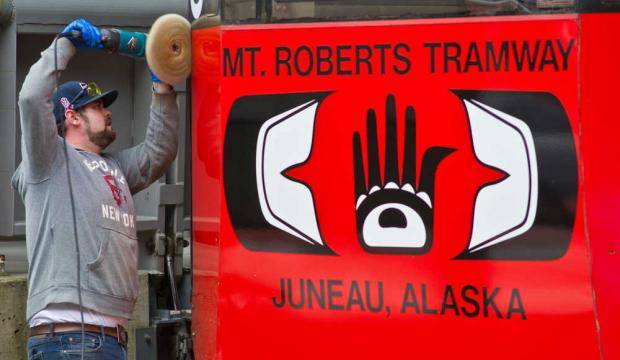Correction: An earlier version of this article reversed the definitions of “directed” and “discretionary” voting. It also did not note Goldbelt’s unique handling of discretionary votes. The article has been updated to reflect those changes.
Three incumbents face seven independent challengers in this year’s Goldbelt Corp. elections.
Founded in 1974 under the Alaska Native Claims Settlement Act, Goldbelt is the urban Native corporation for Juneau. It has about 3,700 shareholders, according to figures provided by the company, with 61 percent living in Alaska.
While the corporation’s biggest visible symbol is the downtown Goldbelt Mount Roberts Tramway, it makes the vast majority of its money from government contracting and services, according to its latest annual report.
Last year’s elections saw incumbents Joseph Kahklen and Randy Wanamaker replaced by Lori Grant and Leilani Wilson Walkrush. A third incumbent, Andrea Cadiente-Laiti, retained her seat.
This year’s incumbents are board chairman Ben Coronell, Katherine Eldemar, and Richard (Rick) A. Beasley.
The independent candidates for their seats are Raymond Austin, Frank L. Jimmy Sr., Tina Cloyd, Todd Antioquia, Darlene Angela McKinley, William (Chilton) Andrews and Steven Scott McClure.
Goldbelt elections are conducted by mail, and shareholders should have already received their ballot information. Each shareholder is entitled to cast a number of votes equal to three times the number of shares they hold. If someone has 100 shares, for example, they have 300 votes to distribute among the candidates.
Each ballot allows a voter to cast their votes “directed,” “quorum only,” or “discretionary.”
Selecting discretionary voting means a voter hands their votes over to the board to be distributed as they see fit. Under Goldbelt’s internal rules, however, discretionary votes are not distributed unless an independent candidate crafts his or her own ballot and allows discretionary voting on that ballot. That has not happened since 1994, so any ballots cast as discretionary are effectively quorum-only votes.
A quorum-only vote is the equivalent of abstaining from picking any candidates. A voter is simply marked as participating, which matters because making a corporate election official requires a certain amount of participation. Picking directed voting allows a voter to spread his or her votes among the 10 candidates as the voter sees fit.
Goldbelt pays an incentive of $50 to each voter who completes their ballot. The incentive may be donated to one of the corporation’s nonprofit efforts.
Ballots must be returned via the pre-paid envelope or otherwise mailed to Dapcevich Accounting Service, 221 Lincoln Street, Sitka. They may also be faxed to 1-877-938-1777 or scanned and emailed to dave@dapcevich.com.
The early bird voting deadline is June 22. The overall voting deadline is 5 p.m. July 12. Results of the election will be revealed July 14, when Goldbelt hosts its 44th annual meeting of shareholders.

